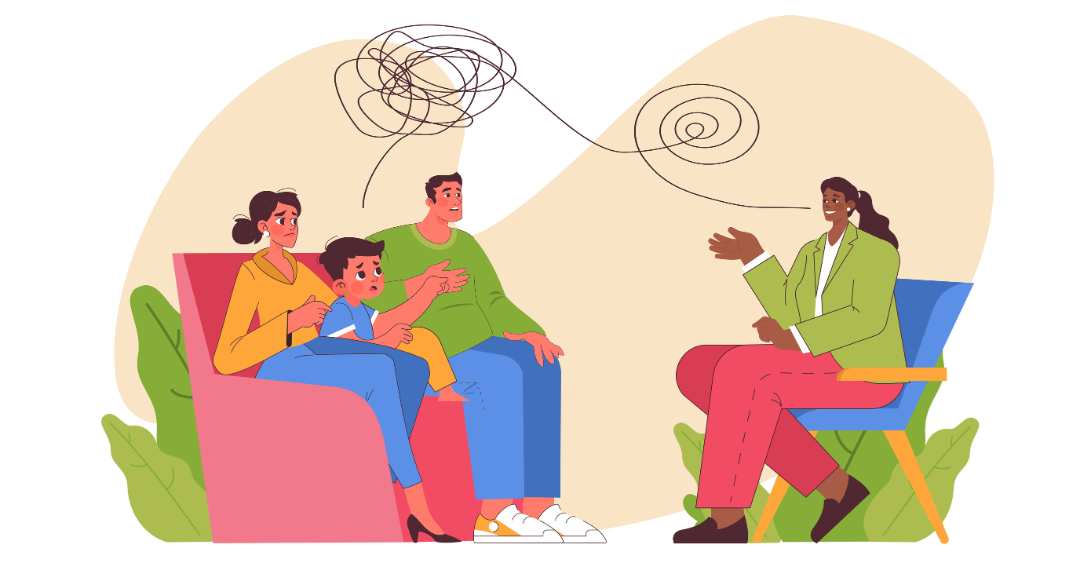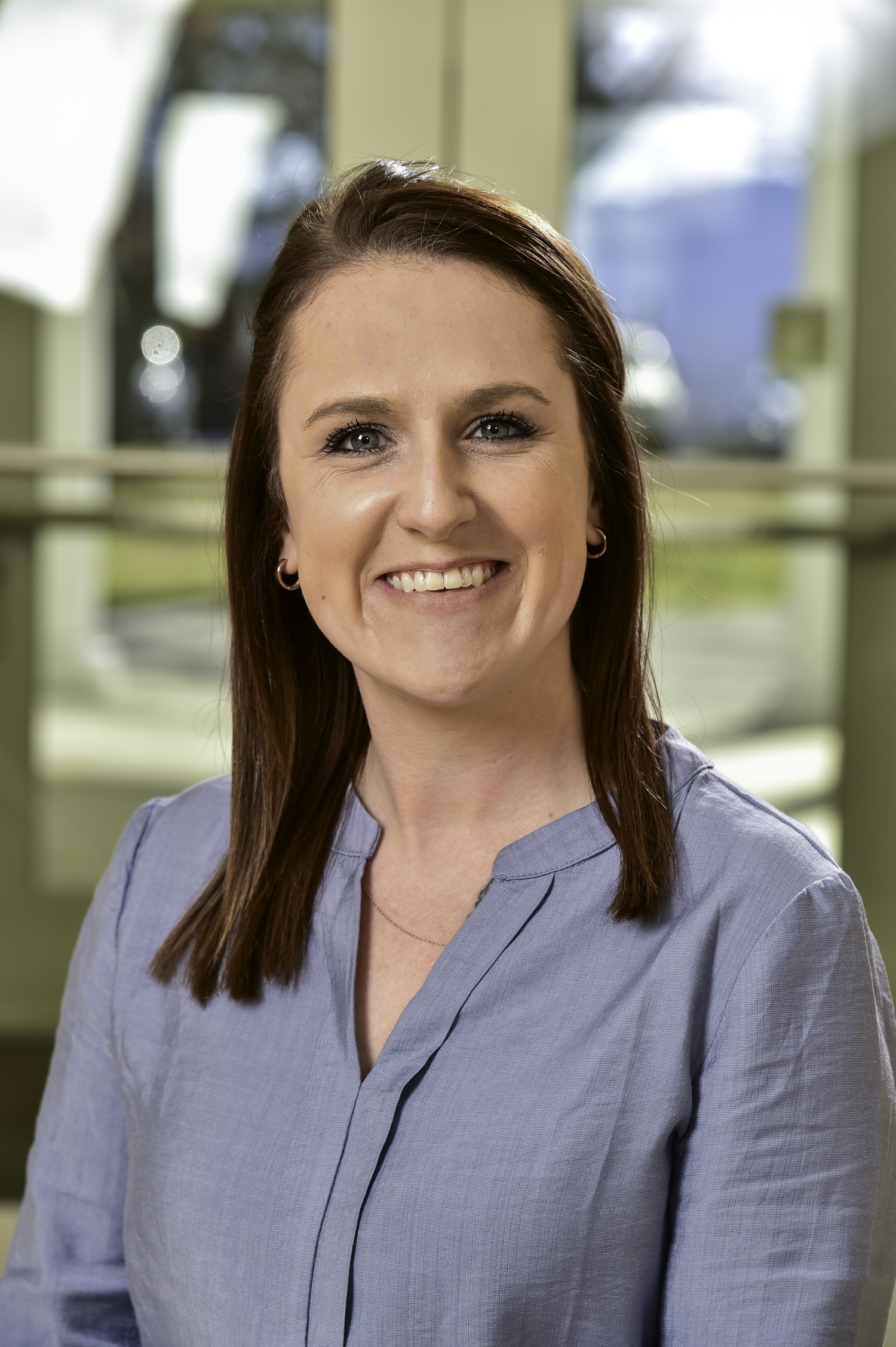Rebuilding Families Through Family Centered Treatment

In early 2024, one family found themselves at a crossroads, grappling with challenges that felt insurmountable and facing the heartbreaking possibility of losing a child. Struggling with drug abuse, self-harm, and behavioral issues, the family was desperate for a solution. Despite their best efforts with traditional counseling services, they received a chilling ultimatum: make significant changes or risk separation. It was then they were referred to HopeTree Family Services, where the Family Centered Treatment (FCT) program ignited a new sense of hope, offering them a chance to rebuild and heal.
What is Family Centered Treatment?
In order to understand how transformative this program can be, it’s important to know what FCT entails. FCT is an evidence-based trauma treatment model committed to family preservation and reunification unless doing so is not in the child’s best interest. Sessions are conducted in the clients’ homes, which allows clinicians to engage the entire family. The treatment unfolds in four phases: joining and assessment, restructuring, valuing change, and generalization.
FCT recognizes that every family is unique, and each referral to the program comes with its own story. Yet, the common goal remains to identify the underlying factors contributing to a child’s disruptive behavior and address them. For this family, it was their child’s choices, such as using drugs, stealing, and missing school, which prompted a desperate need for change. These choices led to numerous hospital visits, instances of running away, and frequent family conflicts. “I kind of felt like [my parents] were always just waiting for me to get in trouble,” the child shared. “I was very secretive, so they had to look for stuff that could possibly put me in danger.” During this time, the family felt like they were living in a constant state of chaos. “We barely talked to each other, and every time we saw each other we were pretty apprehensive,” the child explained.
Although the family yearned for meaningful change, their previous experiences with traditional counseling left them skeptical about long-term success. “They worked for a small amount of time,” the child shared. “I feel like I paid attention, but I was just very stubborn with changing myself.”
Unlike traditional therapy models, FCT empowers families to take charge of their own treatment by setting and achieving their own goals. In collaboration with the clinician, families identify which methods are effective to help them reach realistic, sustainable goals for improvement.
Why a collaborative family approach?
A collaborative family approach allows practitioners to address a child’s behavior while also identifying parenting behaviors that could thwart a client’s progress. FCT acknowledges that each family member may have their own set of traumas and mental health needs, which, if left unaddressed, could contribute to the deterioration of the family’s dynamics and resilience.
“A lot of times we want to change the children when really the change needs to happen with the parent first,” said FCT clinician Allison Parker. “Once you make the change with the parents, it’s going to trickle down to the children.”
While the child fought their personal battles, they remained oblivious to the struggles their parents faced. One parent admitted to struggling with managing stress and communication before participating in FCT. In addition to concerns for their child, they had other children to care for, careers to manage, responsibilities to uphold, and a relationship to nurture. “I felt like my family was falling apart,” they recalled. “I thought I was losing my child, and in turn, the stress was tearing us apart.”
How does Family Centered Treatment work?
“My expectations for FCT were very low,” the child shared. “I didn’t expect it to work. I thought it was just going to make it worse.” Initially, they imagined FCT would simply involve their clinician coming into their home to instruct them on “how to family.” However, they soon discovered that FCT offered a transformative approach unlike any they had experienced before.
FCT depends on family involvement, so collaboration and engagement are essential for success. During the joining and assessment phase, practitioners focus on building rapport and understanding the family’s needs. “We do an assessment with the family to identify their areas of family functioning,” said Allison. “We do this three times during treatment, and the first time this family took theirs, the area they needed to work on was communication.” This phase allows the family to individually express the changes they wish to see and enables the clinician to observe their family dynamics firsthand.
“You’re at home, your guard is down more, and it allows her to see our interactions as a family and in a home setting,” one parent noted.
Once everyone is familiar with one another, the FCT model transitions to the second phase: restructuring. This phase focuses on implementing changes through engaging activities that foster effective family interactions. “If your butt is sitting in the chair for longer than 15 minutes, then you’re not doing FCT,” said HopeTree Family Services Family Centered Treatment Program Director Maggie Cox.
“I really, for the most part, thought it was just going to be a lot of sitting and talking, but Allison always comes with the supplies and everything she needs for the enactment that is most beneficial to us,” the parent explained.
The family openly acknowledges that they weren’t on board with every activity suggested by their clinician. However, FCT is all about discovering what practices resonate best with each family. “It almost gives us second chances,” the child shared. “Just because this one thing won’t work doesn’t mean nothing will.”
Eventually, the family uncovered activities that became their favorites. One memorable exercise involved shattering a pot and writing on each piece things that could tear a family apart. “As a family, you put it back together, tape it up, and write on the tape the different activities and things you can do to put a family back together. That was awesome,” the child recalled. Another activity involved each family member documenting their traumatic experiences year by year from childhood to gain insight into how those events shaped who they are today.
While FCT focuses on the entire family, practitioners also assign individual activities. “I had to use I statements because I wasn’t speaking up for myself enough and putting forth what I needed,” the parent shared. “It allows us to hear what we’re not saying to each other and also shows us that it’s okay to speak and to be heard.”
For this family, each activity became a steppingstone toward improved communication. It allowed them to appreciate each other’s perspectives and recognize what triggers misunderstandings. “As soon as Mom started being more open, the child started to be more open and listen, which was really nice to see,” Allison shared.
The next phase of FCT, valuing change, encourages families to apply their new skills and implement activities without the clinician present. This phase is critical because it sets the stage for the family to sustain the changes made during treatment. “This allows us to make habits that we didn’t have in the past and break some bad habits,” the parent expressed. “Instead of just talking, we’re doing part of the work too.”
Recognizing communication as a challenge, the family set their own goals, such as having regular family dinners and implementing a chore chart to ensure accountability and minimize conflict.
The final phase of FCT is generalization. During this phase, the family is preparing to successfully end the program and must create a plan to continue their progress independently. They noticed the small yet meaningful ways they were sustaining the lessons learned. “It went from us being able to talk to each other in front of Allison to becoming a routine almost,” the child shared. “Now I feel like I get kind of anxious whenever I don’t tell [my parents] something, even if it’s minor.”
With improved communication, they discovered that their family dynamic flows more smoothly, has less tension, and more compromise. “The child took responsibility and apologized for the things they had done that got us here,” the parent shared. “Now we don’t have to fight them tooth and nail to do what they should do as a child.”
Transformative Outcomes
The family is excited to complete their treatment program. They’re ready to apply the lessons learned, habits formed, and communication skills acquired to support one another through future challenges. Their transformative journey with the FCT program has not only fostered resilience but also reignited a profound sense of love and connection that will forever reshape their family dynamic. They look forward to carrying these insights into their daily lives and nurturing an environment where each member feels valued and heard. “I am extremely proud of them because they have done so well,” Allison expressed. “I’m also sad because I don’t get to work with this amazing family anymore. It’s kind of bittersweet.”
As they prepared to complete the program, the family reflected on their journey with gratitude. They credited the FCT program with not only saving their family but also helping them emerge stronger than ever. “It saved my family,” the parent expressed. “I believe it’s because of our struggles and the support from FCT that we’ve emerged stronger than ever.”






